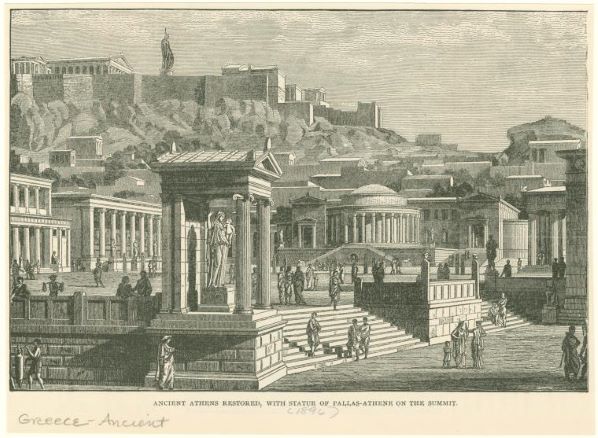Liberty Matters
Rectifying Republican Names

It is a bit surprising to me that this interesting exchange based on Ioannis Evrigenis’ thoughtful essay on ancient democracy and American constitutionalism has brought to my mind thoughts about Confucianism, but here we are.
One of Confucius’ bedrock strategies for establishing and maintaining social harmony is the “Rectification of Names” (zhèngmíng), an idea that at first might seem out of place in a list of fundamental political principles based on the five Confucian constants (Ren: benevolence, humaneness; Yi: righteousness, justice; Li: propriety, rites; Zhi: wisdom, knowledge; and Xin: sincerity, faithfulness) and four Confucian virtues (Yi: righteousness, justice; Zhōng: loyalty; Xiào: filial piety; and Ié: continence). But the more I think about it, the wiser Confucius’s emphasis on the rectification of names seems to me, and the more apt it seems to our current conversation.
For Confucius, one part of rectifying names was understanding one’s social role and then inhabiting it with integrity, but the aspect that seems more relevant here is the project to define terms clearly and consistently so that we can know when we agree and disagree, especially about important things. When we do not mean the same things by the same words, we can be misled both about our agreements and our disagreements. We can find ourselves in one of the worst places Plato thought a human being could be: we might not know what we don’t know. And, in the context of politics, that lamentable situation can create disharmony, unrest, and danger.
As Ioannis rightly points out, throughout political history, different thinkers have meant very different things by “republicanism.” And I argue in my piece, that the conventional distinction between republicanism and democracy (at least in the ancient Athenian sense) is drawn much more sharply than it should be. The slipperiness of the terms “republic” and “democracy” make it difficult to know what the American’ Founders or anyone else really thought about political principles like equality, representation, and popular sovereignty, or the institutions proposed to instantiate them. If our path forward is to reach clarity, it must include careful attention to the meaning of these terms both in principle and in practice. We must engage in the “rectification of names.”
The lead essay in this series and the responses it elicited seem to me to be an excellent set of steps in the right direction. All the authors seem to agree that “republic” means many different things to different thinkers. As I read their pieces, it also seems that all of them see areas of overlap between these various historical meanings of “republic” and “democracy.” The history of political philosophy is rife with thoughtful meditations on both and on the relationships between them, but there does not seem to be a conceptual consensus, nor does there seem to be a conventionally consistent usage of either term in contemporary theory.
Although it might seem tedious or pedantic to pull back from such a rich literature of history and theory to develop a consistent technical vocabulary, at least for Confucius, cleaning up the way we talk to each other about important things is an essential step not just toward theoretical clarity, but also toward political stability, social harmony, justice, and peace.
Copyright and Fair Use Statement
“Liberty Matters” is the copyright of Liberty Fund, Inc. This material is put on line to further the educational goals of Liberty Fund, Inc. These essays and responses may be quoted and otherwise used under “fair use” provisions for educational and academic purposes. To reprint these essays in course booklets requires the prior permission of Liberty Fund, Inc. Please contact oll@libertyfund.org if you have any questions.